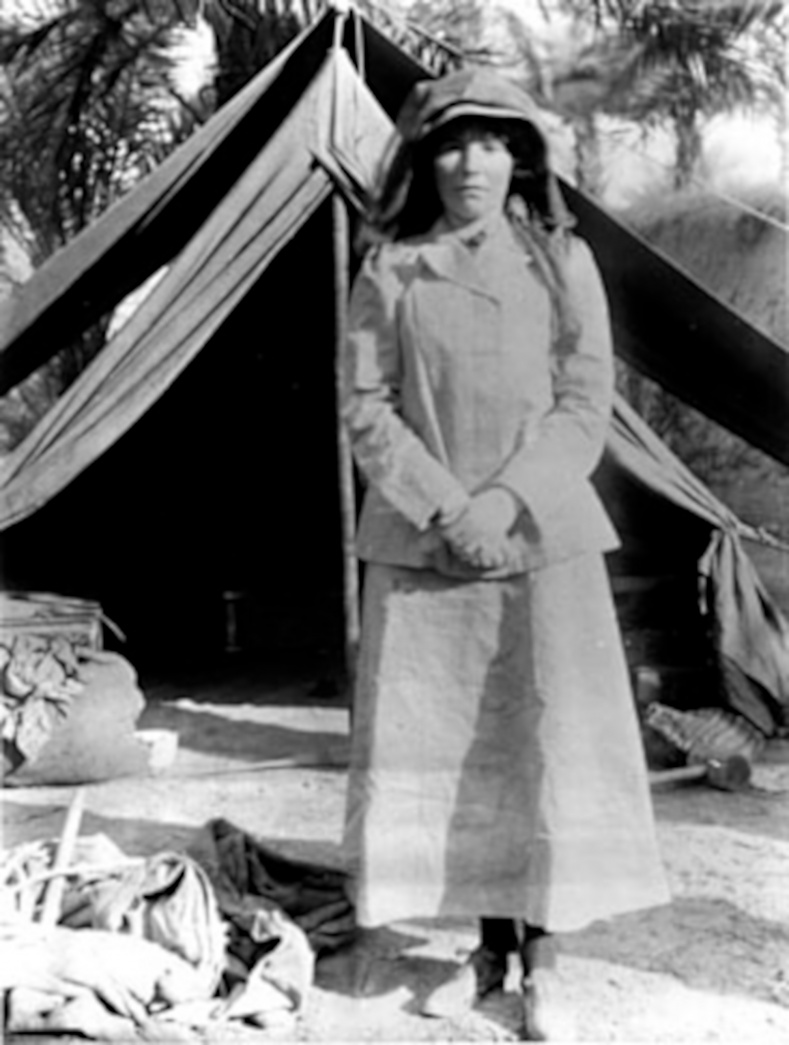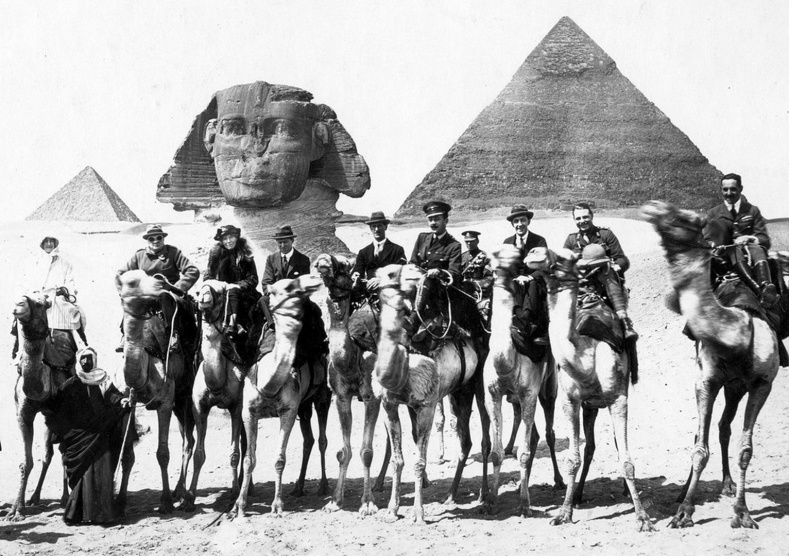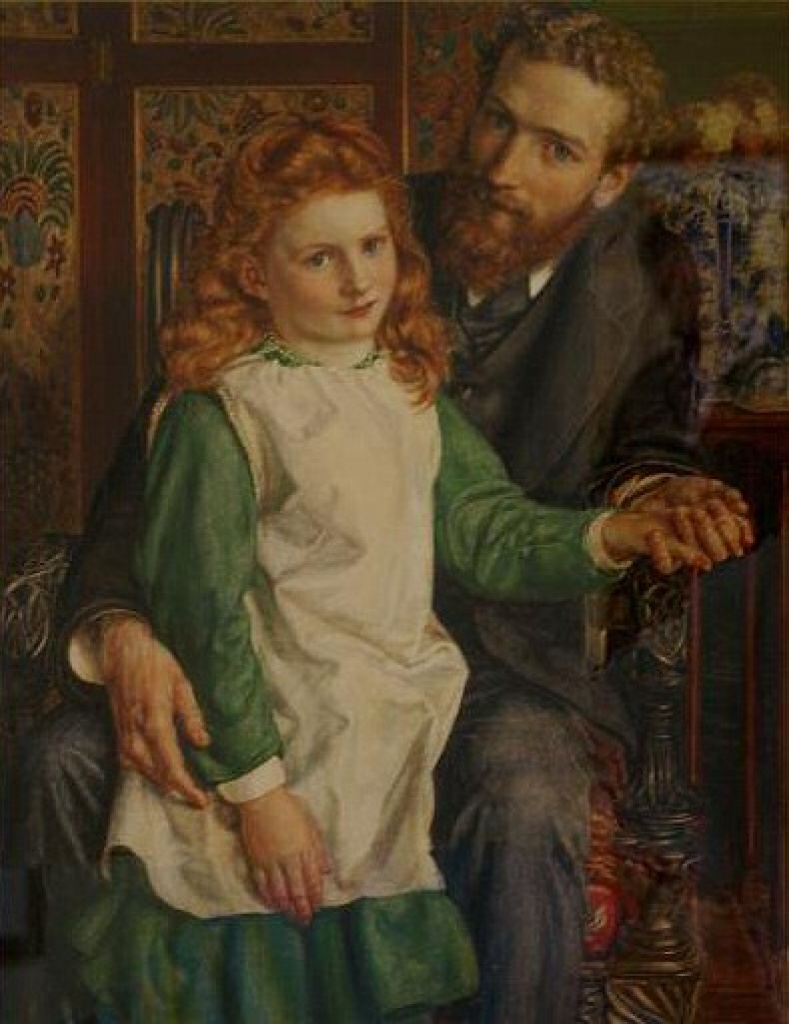


Bell, Gertrude Margaret Lowthian
1868-1926
Archaeologist
Gertrude Bell was born into the powerful family of industrialists, the Bells, at Washington Hall and raised at the family estate at Red Barns, near Redcar. While her family was deeply involved in local and national politics in England, Gertrude’s interests from an early age were more international. As the heiress to a fortune, she was expected to educate herself in domesticity. Her father, Sir Hugh Bell (1844-1931), however, encouraged her athleticism, intellectual pursuits, and independence of mind. She studied at Queens College, London, and achieved a first in Modern History from Lady Margaret Hall, Oxford, in 1888. She spent her life pursuing a passion for archaeology in Mesopotamia, which lies in present-day Iraq and Syria.
Her expert knowledge of the region and personal relationships with political leaders in Mesopotamia, who helped her access remote archaeological sites, led to her recruitment during the First World War by the Arab Bureau of the British government to work with Bedouin tribes as a political officer. She was at that time the only female officer within the British Mesopotamian Expeditionary Force. In 1917 she was awarded a CBE and promoted to Oriental Secretary. Her policy of establishing self-governing Arab states supported by British advisors caused clashes with her superiors who preferred subjugation and direct rule. After writing several publications and producing a white paper, Bell’s arguments convinced the then Secretary of State of the Colonies, Winston Churchill, that direct rule was no longer a feasible strategy for Britain to pursue. Bell then became advisor to Feisal ibn Hussein, the King, whom she had helped become ruler of an autonomous Iraq.
Bell’s career had begun with a curiosity for the archaeology of Mesopotamia and the rich history of the region. By the end of her career, however, she had become instrumental in appointing a King of Iraq and drawing many of the national borders which still define the Middle-East. She died in Baghdad in 1926 after consuming a fatal dose of sleeping tablets. Debate continues today whether her death was deliberate or accidental.
In 1923, Bell was appointed Honorary Directory of Antiquities by King Feisala, successfully raising funds to establish the Iraq Museum. The museum was moved into a permanent building by 1926 and though rebuilt several times over the years, continues to provide a link to the earliest history of the region while protecting the country’s most valuable historical artefacts.
In her will, Bell left £6,000 to the British Museum to establish a British School of Archaeology in Iraq. The school was opened in Baghdad in 1932 and carried out teaching, field trips, lecture series and maintained a library until the Gulf War. The library is currently stored in the French and British embassies. However, since 2005, the School has funded scholarships to Iraqi academics to help re-establish heritage research in post-war Iraq. The School was renamed ‘The Institute for the Study of Iraq (Gertrude Bell Memorial)’ and continues to support historical research and protect heritage in the region. The importance of this work, the challenges faced, have never been higher.
A rich collection of archival material related to Gertrude Bell’s life and career is maintained by the Newcastle University Special Collections and is open to the public.
References
Boesler, M. (2013). Charting the decline of the British Empire. Available here (Accessed: 09/08/18).
Gertrude Bell collection. Newcastle Special Collections. Available here (Accessed: 25/07/2018).
Levine, P. (2013). The British Empire: Sunrise to Sunset, London: Routledge.
Lukitz, L. (2004). Bell, Gertrude Margaret Lowthian. Available here (Accessed: 25/07/2018).
Shepperson, M. (2018). The Turbulent Life of the British School of Archaeology in Iraq. Available here (Accessed: 25/07/2018).